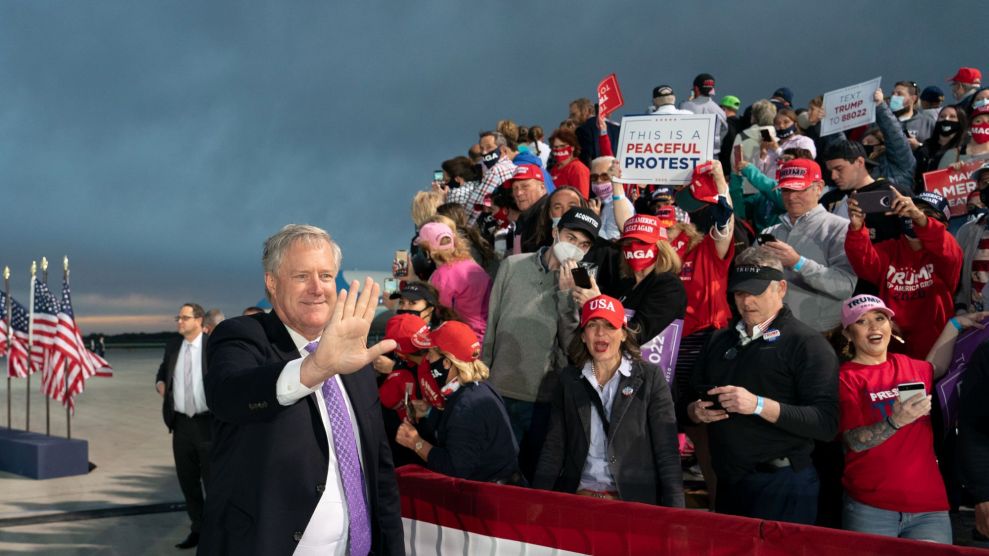
Alex Edelman/ZUMA
The select committee investigating the January 6 riot at the US Capitol plans to move forward with contempt proceedings against Mark Meadows, Trump’s fourth and final chief of staff.
For the past week, Meadows has danced around the possibility of cooperating with the committee, supplying it with documents and signaling that he would sit for a deposition. At the time, Meadows’ decision to work with the committee seemed to cut a contrast with the behavior of Trump adviser Steve Bannon, who refused to turn over documents or sit for a deposition and was eventually charged with two counts of criminal contempt.
But Meadows continued to cite (legally dubious) claims of executive privilege as a reason not to turn over select documents, and the fragile detente between the committee and the former chief of staff collapsed.
In a letter to the committee, Meadows lawyer George Terwilliger II claimed that Meadows decided to stop cooperating with the committee when he learned that it had subpoenaed a third-party communications provider for documents that Meadows claimed were protected under executive privilege. Terwilliger noted that Meadows would entertain the notion of answering written questions from the committee but that he would not sit for an in-person deposition.
The committee responded with a letter saying that it was “left with no choice but to advance contempt proceedings and recommend that the body in which Mr. Meadows once served refer him for criminal prosecution.” In the letter, committee chair Bennie Thompson (D-Miss.) pointed out that Meadows had cited executive privilege to withhold several hundred documents from his personal email account and more than 1,000 texts from his cell phone while simultaneously shopping around a book about his time in the Trump White House. Thompson also claimed that Meadows has failed to specifically state which areas of inquiry he considered to be covered under executive privilege and that the committee had only subpoenaed call data records regarding particular cell phone numbers.
Thompson’s letter stated that Meadows did, however, produce some important texts and documents to the committee, including an email about a proposed plan to appoint alternate electors in certain states to allow Trump to remain in office, an email from January 5 about having the National Guard on standby, and texts with an organizer of the January 6 rally.
Meadows would be the third person related to the January 6 investigation to face contempt proceedings, after Bannon, who was indicted in November, and Jeffrey Clark, a former official at the Justice Department, who hasn’t yet faced a full contempt vote in the House.
















